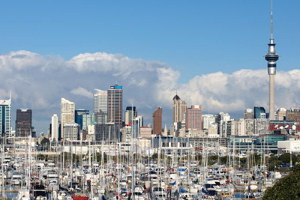CBD retail and recovery chances
CBD retail has been the most tested sector since the onset of the pandemic.
Tuesday, May 17th 2022, 11:11AM
by Sally Lindsay

For every CBD office employee working from home one day per week or fortnight means a 10-20% reduction in foot traffic and, subsequently, CBD retail spending and office rents.
This is the dilemma for major CBDs throughout the country alongside the lockdowns and alert levels taking their toll. How do they recover
Auckland’s CBD is one of the worst hit. Home to 40,000 residents and responsible for generating $23 billion in annual GDP it has seen far better days.
The city has lost its vibrancy and will probably never be the same as Covid hastened a change in shopping habits, with many more people using online retail.
Shops are empty with “For Lease” signs in their windows, foot traffic has dwindled because roads are closed as the City Rail Link construction disrupts much of the CBD and Auckland Council gets rid of on-street parking. “Taking away parking and you take away the reason for people to come into the city,” says one retailer.
Auckland Council has launched a year-long plan to revitalise the city centre, but will it be enough for CBD retail?
JLL’ latest Retail Investment Review and Outlook says CBDs will rebound as the pandemic fades and people become used to living in a post-pandemic environment. Nevertheless, the recovery is likely to be prolonged and uneven, says the report.
The delayed re-opening of international borders in Australia and New Zealand (by global standards), and slow return of international travellers, is likely to detract from CBD retail for the next two to three years. Daily visitors to the CBD will ebb and flow with peaks and troughs in COVID-19 infection rates and likely to weigh on retailer performance in the medium term, says Sam Hatcher, JLL’s Australia joint head of retail investments.
“The structural element of the working from home theme is the main factor for determining how much of a correction retail rents are likely to undergo. It is highly likely that some proportion of CBD office workers will work from home more frequently than they did before the pandemic.”
However, trends evident in the office market suggest employers are not reducing their overall space requirements but are instead opting to reconfigure and upgrade their space for the new hybrid working model.
“Only a small proportion of corporate tenants appear to be downsizing,” says Hatcher. “There are a variety of reasons tenants are choosing not to downsize, some of which include headcount growth, the training and collaboration benefits of a team environment and the preference from staff for social interaction.”
CBD retail gross rents declined by 14.1% in New Zealand over the two years to the fourth quarter last year, suggesting that some of the cyclical and structural factors weighing on retailer performance are already priced in.” There is still a significant disconnect between landlords and tenant expectations for rent levels in the CBD,” says Hatcher.
“Retailers are factoring in uncertainty, volatility, and subdued trading patterns when pricing space within the CBD. Nevertheless, some retailers are still taking a long-term view and advantage of the opportunity to secure sites in prime locations at attractive rates, in preparation for a rebound.”
Over the long-term, the multi-decade theme of urbanisation – people moving to cities for employment opportunities – will support CBD retail.
Hatcher says while the recovery will be slow and uneven over the next three to five years, the longer-term outlook for CBD retail is positive.
| « Retailers opening stores that don’t sell anything | Beating the long-term average » |
Special Offers
Comments from our readers
No comments yet
Sign In to add your comment
| Printable version | Email to a friend |


